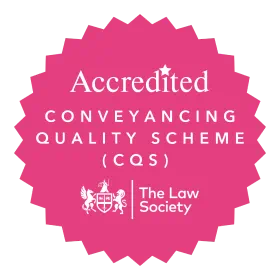When it comes to estate planning, one of the most crucial decisions you’ll make is choosing an executor. The executor is responsible for administering your estate, ensuring your final wishes are carried out, and distributing your assets according to your will.
Understanding the role of an executor and how to select the right person for the job is essential to ensuring your estate is handled smoothly and legally after your passing.
In this blog, we’ll explore the responsibilities of an executor, the legal requirements they must meet, and offer some practical advice on how to choose the right executor.
What Is an Executor?
An executor is a person, or sometimes a legal entity such as your Solicitors, named in a will to manage the estate of the deceased. Their primary job is to ensure that the wishes outlined in the will are executed correctly. Executors have a legal obligation to act in the best interests of the estate and its beneficiaries, following the law and the terms of the will.
To quote Spiderman, “with great power comes great responsibility”. The role of an executor does come with both and depending on the size and circumstances of the estate, it can be a complex job too.
Key Responsibilities of an Executor
The executor’s duties begin once the will’s creator, known as the testator, passes away. Below are the primary responsibilities of an executor:
- Obtain Probate
The executor may need to apply for a Grant of Probate. This legal document gives the executor the authority to manage the deceased’s assets. Without probate, an executor may not be able to access bank accounts, sell property, or handle other aspects of the estate. This will depend on whether assets are held jointly or they may be below the threshold balance required by the particular bank.
- Manage and Protect the Estate
The executor is responsible for ensuring that the assets of the estate, such as property, savings, and personal possessions, are protected. This may include securing property, notifying financial institutions, and making sure insurance is up to date.
- Settle Debts and Liabilities
Executors are required to settle any outstanding debts or liabilities the deceased may have had. This includes paying off mortgages, loans, credit card debt, or any other obligations. Executors must also ensure that any taxes owed by the estate are calculated and paid.
- Distribute Assets to Beneficiaries
Once debts and taxes are paid, the executor will distribute the remaining assets to the beneficiaries according to the will’s instructions. This process can be straightforward, but it can also become complicated if assets need to be sold, beneficiaries disagree, or there are any legal challenges.
- Handle Disputes
Occasionally, disputes arise between beneficiaries, or challenges are made to the will. Executors are responsible for addressing these disputes, which could involve seeking legal advice or representation.
- Keep Detailed Records
Throughout the process, an executor must maintain clear, detailed records of the estate’s assets, liabilities, and any distributions made to beneficiaries. These records are important in case there is any legal challenge or dispute later on.
Who Can Be Your Executor?
In the UK, executors must meet certain legal criteria. They must be over 18 years old and of sound mind. It’s important to note that an executor doesn’t have to be a professional; they can be a friend, family member, or even a beneficiary of the will. However, it’s crucial that the person chosen is willing and capable of fulfilling their legal duties. Help is at hand, however, and you can instruct a Probate Solicitor to support you through this process, providing clear and practical advice and guidance as it is important that their liabilities are paid, and their assets distributed correctly in accordance with their Will or the rules of intestacy. Here at Downie & Gadban, we are able to advise and assist you through the steps leading to obtaining a grant and completing the administration process.
How to Choose the Right Executor
Executors can be personally liable for the debts in the estate if they do not ensure that all debts are paid before distributing the estate. Choosing an executor, therefore, is an important decision that requires careful consideration. Here are some key factors to consider when making your choice:
- Trustworthiness and Integrity
- Financial and Organisational Skills
- Willingness and Availability
- Age and Health
Joint Executors: Is It a Good Idea?
In some cases, people choose to name more than one executor, often referred to as “joint executors.” This can be useful if you want to balance the workload or ensure multiple perspectives are considered in the decision-making process. However, it’s important to consider potential complications that can arise if the joint executors do not agree on certain matters. Clear communication and trust between joint executors are essential.
Can an Executor Be a Beneficiary?
Yes, an executor can also be a beneficiary of the will. In fact, it’s quite common for people to name their spouse, child, or close friend as both executor and beneficiary. However, in cases where there might be conflicts of interest, it can be helpful to appoint a neutral, third-party executor.
Final Thoughts: Ensuring the Right Choice
Choosing an executor is a key part of the estate planning process. It is essential to select someone you trust, who has the skills and capacity to handle the responsibilities. By carefully considering your options and discussing the role with potential candidates in advance, you can ensure that your estate will be managed smoothly and your final wishes honoured.
If your Executors require help and guidance with the administration of your estate, here at Downie & Gadban, we are able to support them through this process, providing clear and practical advice and guidance to help minimise the stress of dealing with a loved one’s estate. After someone dies, it is important that their liabilities are paid, and their assets distributed correctly in accordance with their Will or the rules of intestacy. We are able to advise and assist the Executors with any part of the process leading to an obtaining a grant and completing the administration process. We can just help with obtaining a grant of representation only or with the whole administration process depending on how much the Executor wants, or is able, to do themselves.
Please do not hesitate to contact our team of experienced Probate Solicitors at Downie & Gadban if you need any assistance or guidance on any step of the estate planning process.
For more information on wills, LPAs, Trusts or estate planning, please call us on 01420 82879 or email us at [email protected].
The contents of this blog are for general awareness purposes and do not purport to legal or professional advice. The law may have changed since this blog was published. Readers should not act on the basis of information shared within this, or any other blog, but should seek appropriate, professional advice on their own circumstances.



